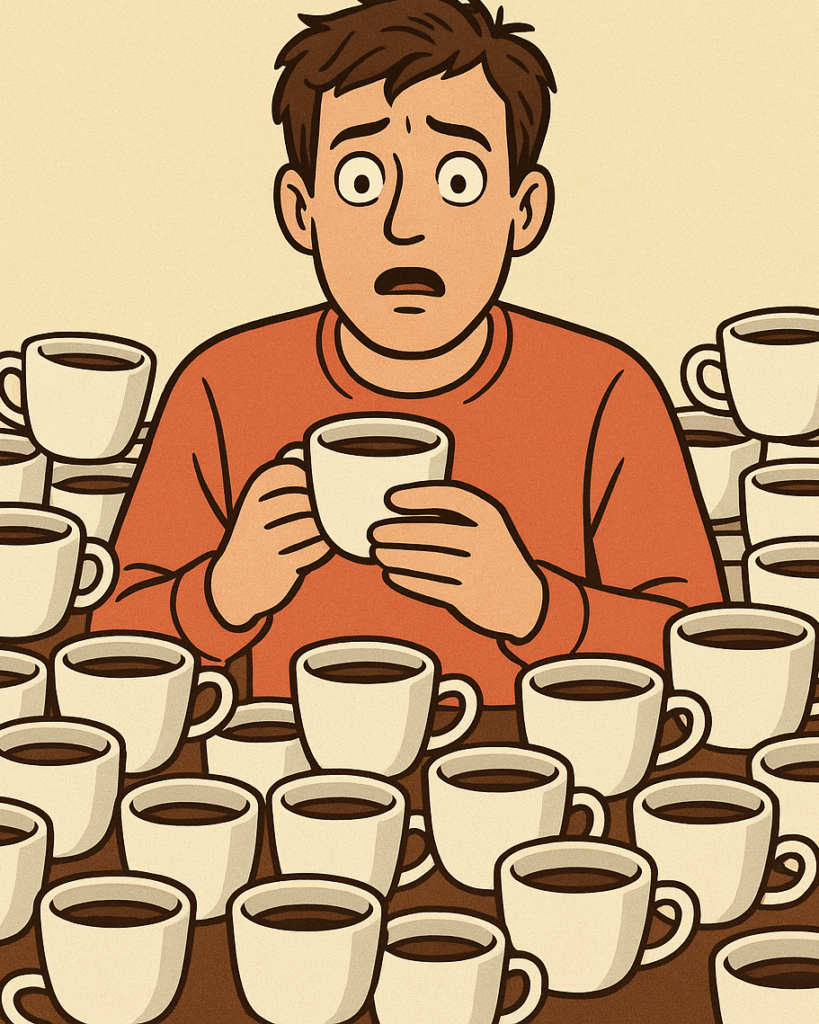For many people, starting the day without a cup of coffee feels almost impossible. That is why it is common to hear people say they are “addicted” to caffeine. But is caffeine truly addictive, or is it just a habit we have grown used to?
A 2024 study by Antonio et al., published in the Journal of the International Society of Sports Nutrition, explores this topic in depth and the findings might surprise you.
Caffeine and the Brain
Caffeine is a stimulant that blocks adenosine receptors in the brain, making you feel more alert and awake. Over time, regular consumption can lead to tolerance, meaning you might need more caffeine to feel the same boost. If you suddenly stop drinking coffee, you could experience withdrawal symptoms like headaches, fatigue, irritability, or difficulty concentrating.
However, this does not mean caffeine activates the same brain reward systems as addictive drugs such as nicotine or opioids. According to the researchers, caffeine does not trigger dopamine release in the brain’s reward center, the ventral striatum, which is a key factor in defining true addiction.
What the Guidelines Say
The DSM-5 or Diagnostic and Statistical Manual of Mental Disorders recognizes caffeine withdrawal and caffeine-induced disorders. It has also proposed a diagnosis called Caffeine Use Disorder (CUD), but it is not officially classified as a substance use disorder. Similarly, the ICD-11 or International Classification of Diseases has removed caffeine dependence syndrome from its list, aligning with current scientific evidence.
In other words, while you may feel like you “need” your coffee, science shows it is not considered an actual addiction in the clinical sense.
What This Means for Coffee Lovers
Drinking coffee regularly is generally safe for most healthy adults, especially in moderate amounts such as up to 400 mg of caffeine per day or about 3 to 4 cups of coffee. The key is moderation. If your coffee habit is not interfering with your health, sleep, or daily activities, you probably have nothing to worry about.

Still, if you notice that you cannot function without multiple cups or experience strong withdrawal symptoms when you skip it, it might be worth gradually reducing your intake.
The Bottom Line
Caffeine can create a sense of dependency, but it does not meet the scientific or medical criteria for addiction. So, enjoy your morning cup with peace of mind while keeping an eye on your overall consumption.
Reference
Antonio, J., Newmire, D. E., Stout, J. R., Antonio, B., Gibbons, M., Lowery, L. M., Harper, J., Willoughby, D., Evans, C., Anderson, D., Goldstein, E., Rojas, J., Monsalves-Álvarez, M., Forbes, S. C., Gomez Lopez, J., Ziegenfuss, T., Moulding, B. D., Candow, D., Sagner, M., and Arent, S. M. (2024). Common questions and misconceptions about caffeine supplementation: what does the scientific evidence really show? Journal of the International Society of Sports Nutrition, 21(1), 2323919. https://doi.org/10.1080/15502783.2024.2323919





